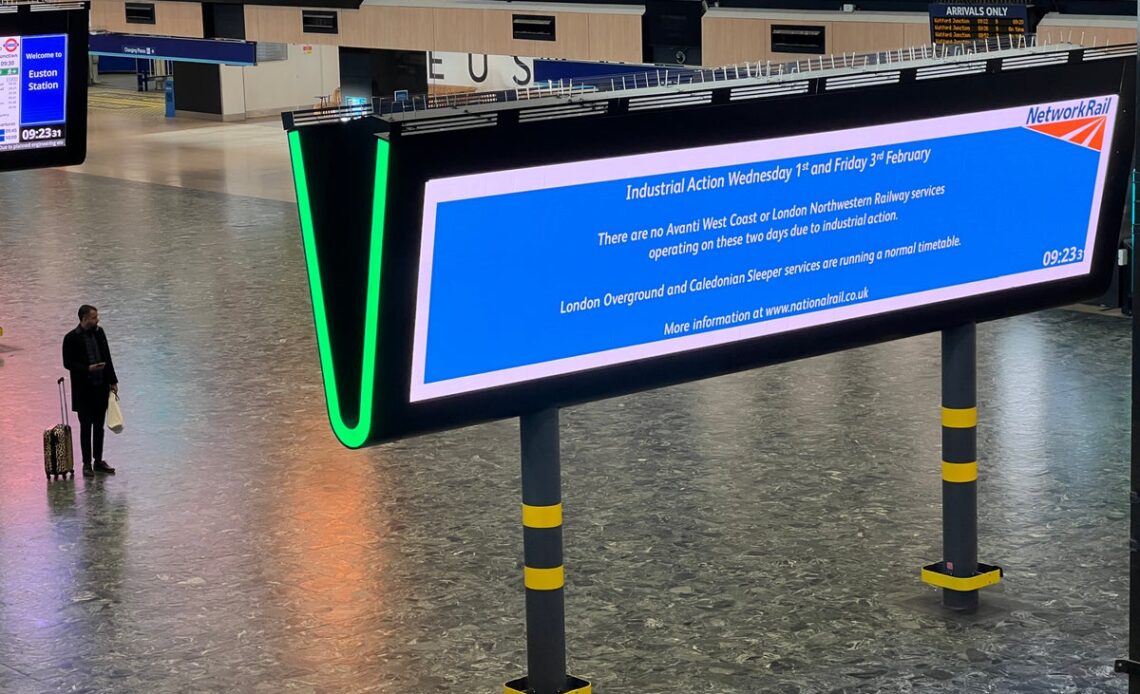The next series of national rail strikes is under way, mainly affecting travellers in England – including families who were hoping to go by train during the half-term holiday, as well as commuters. Both of the main rail unions have called walk-outs this week, with disruption continuing until Sunday 4 June – impacting sports fans travelling to the FA Cup Final in Wembley as well as the Epsom Derby.
The industrial action is part of a long and bitter dispute over pay and working arrangements that began in June 2022.
On Wednesday 31 May and Saturday 3 June, train drivers belonging to Aslef are stopping work at more than a dozen operators, including all the key long-distance and commuter rail firms.
The RMT has called a strike by members working at 14 train operators on Friday 2 June.
In the past year, national rail strikes have caused problems for tens of millions of train passengers. Stoppages have been called frequently, causing massive disruption and making advance travel planning difficult.
The main rail union, the RMT, has staged walk-outs on 24 days in the current wave of strikes, with Aslef stopping work on 10 previous occasions.
These are the key questions and answers.
Who is striking and when?
Aslef instructed all its train driver members working for 16 train operators to strike on Wednesday 31 May and Saturday 3 June.
The train firms are those contracted by the Department for Transport. They include the leading intercity operators:
- Avanti West Coast
- CrossCountry
- East Midlands Railway
- Great Western Railway
- LNER
- TransPennine Express
The vast majority of London commuter operators will also be hit:
- Greater Anglia
- GTR (Gatwick Express, Great Northern, Southern, Thameslink)
- Southeastern
- South Western Railway
Operators focusing on the Midlands and north of England will be affected:
- Chiltern Railways
- Northern Trains
- West Midlands Trains
There will also be a ban on “non-contractual overtime” on Thursday 1 June.
The RMT union has called its members out on strike on Friday 2 June. The same train operators are involved – with the addition of c2c, which runs from the City of London to south Essex.
What is the effect?
On each of the strike days, thousands of trains are cancelled, wrecking travel plans for millions of passengers. On lines where there are services, they will start later and finish earlier than normal.
The impact of the drivers’ and RMT…
Click Here to Read the Full Original Article at The Independent Travel…
